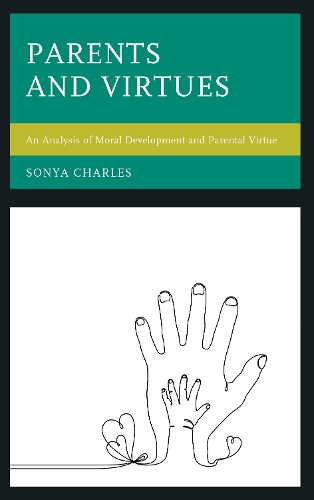
Parents and Virtues: An Analysis of Moral Development and Parental Virtue
(Paperback)
Available Formats
Publishing Details
Parents and Virtues: An Analysis of Moral Development and Parental Virtue
By (Author) Sonya Charles
Bloomsbury Publishing PLC
Lexington Books
2nd July 2021
United States
Classifications
Professional and Scholarly
Non Fiction
Humanist philosophy
Age groups: children
Sociology: family, kinship and relationships
173
Physical Properties
Paperback
146
Width 153mm, Height 219mm, Spine 11mm
222g
Description
Although individual parents face different issues, Sonya Charles believes most parents want their children to be good people who are happy in their adult lives. Parents and Virtues: An Analysis of Moral Development and Parental Virtue starts from the question of how parents can raise their child to be a moral and flourishing person. At first glance, readers might think this question is better left to psychologists rather than philosophers. The author proposes that Aristotles ethical theory (known as virtue theory) has much to say on this issue. Aristotle asks how we become moral people and how that relates to leading a good life. In other words, his motivating questions are very similar to the goals parents have for their children. The first part of this book details what the basic components of Aristotles theory can tell us about the project of parenting. In the second part, the focus shifts to consider some issues that present potential moral dilemmas for parents and discuss whether there are specific virtues we may want to use to guide parental actions. Parents and Virtues will be of particular value to scholars and students who work on the ethics of parenthood, virtue theory, and bioethics.
Reviews
In Parents and Virtues, Charles (philosophy and comparative religion, Cleveland State Univ.) provides an engaging look at parental ethics. The book comprises an introduction and six chapters divided into two parts. The first part focuses on the roles parents play in raising children and the second on specific applied ethical dilemmas associated with parenting. The three chapters in the first part apply contemporary, neo-Aristotelian virtue theory to raising children who become good, happy adults. Here the author focuses on how parents can help their children acquire virtue, practical wisdom, and happiness. In contrast, each chapter in the second part focuses on a stand-alone topic in applied ethics. The first of these provides an engaging discussion of the ethics of parental dishonesty, and the second explores questions regarding parental authority and a childs right to an open future. The final chapter focuses on moral questions regarding deciding to become a parent. This book offers positive contributions to contemporary bioethics literature.
Summing Up: Recommended. Upper-division undergraduates through faculty and professionals. * CHOICE *
Author Bio
Sonya Charles is associate professor in the Department of Philosophy and Comparative Religion at Cleveland State University.
